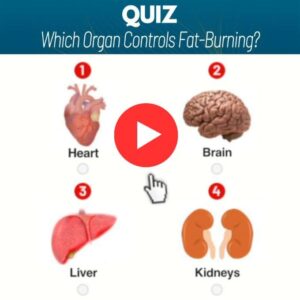In the quest for optimal health and effective weight management, understanding the role of metabolism is crucial. Central to this is the impact of certain vitamins, known as “metabolic vitamins” which play a pivotal role in enhancing metabolic functions.
2. Understanding Metabolism
Metabolism is at the heart of every function in our bodies, from digesting food to the very breaths we take. It’s a complex network of biochemical processes that convert the food we eat into the energy our cells need to function.
This section delves into the intricacies of metabolism, shedding light on its components and the factors that influence its efficiency.
2.1 What is Metabolism?
At its core, metabolism encompasses all the chemical reactions that occur within our bodies to sustain life. These reactions are two-fold: catabolism and anabolism.
Catabolism: This is the breakdown phase, where large molecules such as carbohydrates, fats, and proteins are broken down into smaller units like glucose, fatty acids, and amino acids, respectively.
This process releases energy, which is then stored in the form of ATP (adenosine triphosphate), the energy currency of the cell.
Anabolism: Conversely, anabolism is the constructive phase. It uses the energy produced during catabolism to synthesize and build up the complex molecules that our bodies need for growth, repair, and maintenance, such as proteins and nucleic acids.
These two processes are intrinsically linked, each dependent on the other to maintain the body’s balance, or homeostasis.
2.2 Factors Influencing Metabolic Rate
The rate at which our bodies convert food into energy — our metabolic rate — is not uniform across the board. It varies greatly among individuals due to several key factors:
Genetic Makeup: Our genes play a significant role in determining our basal metabolic rate (BMR), the amount of energy our bodies need to perform basic life-sustaining functions like breathing, circulation, and cell production.
Age: As we age, our metabolic rate generally slows down. This is partly due to a decrease in muscle mass and changes in hormonal balance, which affect how efficiently our bodies convert food into energy.
Muscle Mass: Muscle tissue is more metabolically active than fat tissue. This means that individuals with more muscle mass tend to have a higher metabolic rate because their bodies require more energy to maintain muscle tissue, even at rest.
Physical Activity: Regular physical activity can boost your metabolic rate by building muscle mass and stimulating the rate at which your body burns calories (thermogenesis). The intensity and duration of the activity play a significant role in determining the extent of this increase.
Diet: Certain foods and diets can influence your metabolic rate. For example, protein has a higher thermic effect than carbohydrates or fats, meaning your body uses more energy to digest and metabolize protein.
Hormonal Factors: Hormones such as thyroid hormones significantly influence metabolic rate by regulating the rate of metabolism of fats, carbohydrates, and proteins.
Environmental Factors: Temperature can also affect metabolic rate. Both shivering in the cold and sweating in the heat can increase your body’s energy expenditure.
3. The Role of Vitamins in Metabolism
Vitamins are vital for metabolism, acting as co-enzymes in processes that convert food into energy. Here’s how key vitamins contribute:
B Vitamins: Energy Production Powerhouses
- Each B vitamin, from B1 (Thiamine) to B12 (Cobalamin), plays a unique role in breaking down carbohydrates, fats, and proteins into energy.
- Common sources include whole grains, meats, and leafy greens.
Vitamin C: More Than an Antioxidant
- Vital for synthesizing collagen and carnitine, and aids in iron absorption, indirectly supporting energy metabolism.
- Found in citrus fruits, bell peppers, and broccoli.
Fat-Soluble Vitamins (A, D, E, K): Subtle Yet Significant
- Vitamin D influences genes related to glucose and fat metabolism, with sources including sunlight, fatty fish, and fortified foods.
- Vitamins A, E, and K contribute to overall metabolic health through roles in gene expression, antioxidant defense, and protein synthesis.
Consequences of Deficiencies
- Lack of B vitamins can lead to energy depletion and neurological issues.
- Vitamin D deficiency may increase the risk of metabolic syndrome and diabetes.
- Insufficient Vitamin C impacts collagen synthesis and iron absorption.
Ensuring Adequate Intake
A balanced diet rich in fruits, vegetables, whole grains, and lean proteins typically provides sufficient vitamins for metabolism.
In cases of dietary restrictions or increased needs, supplements might be necessary, but it’s essential to consult healthcare professionals to avoid excessive intake, especially with fat-soluble vitamins.
4. Key Metabolic Vitamins
4.1 Vitamin B Complex: The Energy Catalysts
4.1.1 Functions
The B vitamins, including B1 (Thiamine), B2 (Riboflavin), B3 (Niacin), B5 (Pantothenic Acid), B6 (Pyridoxine), B7 (Biotin), B9 (Folate), and B12 (Cobalamin), are integral in converting dietary energy into ATP, the cellular energy currency.
4.1.2 Sources
Rich sources include whole grains, eggs, dairy, meats, legumes, seeds, nuts, dark leafy greens, and fortified foods.
For those with dietary restrictions or increased needs, a high-quality B-complex supplement can be beneficial.
Discover more information about metabolic health on my website: >> Metabolic Workouts for Women <<
4.2 Vitamin D: The Sunshine Vitamin
4.2.1 Role
Vitamin D is unique as it is synthesized by the body upon sun exposure and plays a role in calcium absorption, immune function, and inflammation reduction.
Emerging research suggests it also impacts metabolic syndrome and obesity.
4.2.2 Sources
Besides sunlight, vitamin D can be obtained from fatty fish, egg yolks, fortified foods, and supplements, especially important in regions with limited sunlight.
4.3 Antioxidant Vitamins (C and E): Cellular Protectors
4.3.1 Importance
These vitamins combat oxidative stress encountered during metabolic processes, protecting cellular integrity and supporting metabolic efficiency.
4.3.2 Food Sources
Vitamin C is abundant in citrus fruits, strawberries, bell peppers, and broccoli, while Vitamin E can be found in nuts, seeds, spinach, and broccoli.
5. Minerals Supporting Metabolic Health
| Mineral | Role in Metabolism | Signs of Deficiency | Food Sources |
| Iron | Oxygen transport in blood, energy production | Fatigue, weakness, pale skin | Red meat, poultry, seafood, beans, spinach |
| Magnesium | Enzyme function, energy production, muscle and nerve function | Muscle cramps, mental disorders, fatigue | Nuts, seeds, whole grains, leafy green vegetables |
| Zinc | Immune function, DNA synthesis, wound healing | Hair loss, diarrhea, delayed wound healing | Meat, shellfish, legumes, seeds, nuts |
| Calcium | Bone health, muscle function, nerve signaling | Osteopenia, osteoporosis, muscle spasms | Dairy products, leafy greens, fortified foods |
| Potassium | Fluid balance, muscle contractions, nerve signals | Muscle weakness, cramping, fatigue | Bananas, potatoes, oranges, cucumbers |
This table provides a concise overview of each mineral’s critical role in metabolism and bodily functions, common signs of deficiency that may indicate a need for increased dietary intake or supplementation, and natural food sources to meet daily nutritional needs.
6. Enhancing Metabolism with Green Tea Extract
Green tea extract, a concentrated form of green tea, is renowned for its metabolic benefits, largely attributed to its high content of catechins, a type of antioxidant.
The most notable catechin in green tea is epigallocatechin gallate (EGCG), which has been extensively studied for its potential to enhance metabolic rate and promote fat oxidation.
Active Components and Mechanisms
EGCG: This powerful antioxidant is thought to stimulate the nervous system and fat oxidation by inhibiting an enzyme that breaks down the hormone norepinephrine, increasing its levels and promoting the breakdown of fat.
Caffeine: Green tea contains a moderate amount of caffeine, which, in combination with EGCG, may have a synergistic effect, further boosting metabolism and energy expenditure.
Metabolic Benefits
Increased Metabolic Rate: Studies have shown that green tea extract can temporarily increase metabolic rate, with some research suggesting a 3-4% increase in energy expenditure over 24 hours.
Enhanced Fat Oxidation: EGCG has been shown to increase the rate of fat oxidation, which can contribute to reduced body fat over time, particularly in the abdominal area.
Improved Exercise Performance: The components in green tea extract may enhance physical performance by mobilizing fatty acids from fat tissues, making them available for use as energy during exercise.
Practical Considerations
Incorporating green tea extract into a weight management or wellness regimen could be beneficial, especially for those looking to enhance their metabolic rate and fat oxidation.
It can be consumed in capsule form, as a liquid extract, or simply by drinking green tea.
However, it’s important to note that individual responses can vary, and the effects might be more pronounced in some than in others.
Additionally, while green tea extract is generally safe for most people, high doses may lead to adverse effects due to its caffeine content and other compounds. It’s advisable to start with lower doses and monitor one’s tolerance.
7. Lifestyle Factors for Optimizing Metabolic Health
Optimal metabolic health goes beyond nutrition, encompassing various lifestyle factors that can significantly influence metabolic efficiency.
Understanding and integrating these factors can enhance energy levels, weight management, and overall well-being.
Lifestyle Factors for Optimizing Metabolic Health
| Lifestyle Factor | Impact on Metabolism | Actionable Tips |
| Physical Activity | Increases muscle mass and metabolic rate enhances fat oxidation | Incorporate strength training and aerobic exercises into your routine, aim for at least 150 minutes of moderate activity per week. |
| Diet | Provides the nutrients necessary for metabolic processes; influences body composition | Focus on whole, nutrient-dense foods; balance intake of macronutrients (carbohydrates, proteins, fats); include a variety of fruits and vegetables. |
| Hydration | Essential for cellular processes and thermogenesis; can influence satiety and weight management | Drink at least 8 glasses of water per day; more if active or in hot climates, monitor urine color as a hydration indicator. |
| Sleep | Affects hormonal balance related to hunger and metabolism; and influences energy expenditure | Aim for 7-9 hours of quality sleep per night; establish a regular sleep schedule, create a restful sleeping environment. |
| Stress Management | Chronic stress can lead to hormonal imbalances affecting metabolism and fat storage | Practice stress-reduction techniques such as mindfulness, meditation, and yoga, engage in regular physical activity, seek professional support if needed. |
This table succinctly summarizes the critical lifestyle factors affecting metabolic health, offering practical advice to optimize each area for improved metabolic function and overall well-being.
Physical Activity: The Metabolic Booster
Strength Training: Building muscle mass through resistance training can significantly increase basal metabolic rate (BMR), as muscle tissue consumes more calories than fat tissue, even at rest.
Aerobic Exercise: Activities like running, swimming, and cycling improve cardiovascular health and increase total energy expenditure, contributing to fat loss and metabolic health.
Balanced Diet: Nutrient-dense and Varied
Whole Foods: Emphasizing whole, unprocessed foods ensures a rich intake of necessary vitamins and minerals for metabolic processes.
Protein: Adequate protein intake supports muscle repair and growth, which is crucial for maintaining a higher metabolic rate.
Fiber: High-fiber foods improve digestive health and can aid in weight management by promoting satiety.
Hydration: Essential for Metabolic Processes
Water: Adequate water intake is vital for optimal metabolism, as dehydration can slow metabolic rate. Drinking water, especially before meals, can also aid in weight management by enhancing satiety.
Sleep: The Foundation of Metabolic Health
Quality and Duration: Poor sleep quality or insufficient sleep can disrupt hormonal balance, affecting hunger hormones like ghrelin and leptin, leading to increased appetite and potential weight gain. Aim for 7-9 hours of quality sleep per night to support hormonal regulation and metabolic health.
Stress Management: Reducing Metabolic Strain
Chronic Stress: Long-term stress can lead to elevated cortisol levels, which may disrupt metabolic health, leading to increased fat storage, particularly in the abdominal area.
Relaxation Techniques: Practices such as mindfulness, meditation, yoga, and regular physical activity can help manage stress levels, mitigating its adverse effects on metabolism.
8. Precautions and Recommendations
While vitamins and minerals play essential roles in metabolic health, it’s crucial to approach supplementation with caution.
An excess of certain nutrients, especially fat-soluble vitamins and minerals, can lead to adverse health effects. This section outlines key considerations and advice for safe supplementation practices.
Understanding Supplementation Risks
Fat-Soluble Vitamins: Unlike water-soluble vitamins, which are excreted in the urine, fat-soluble vitamins (A, D, E, and K) can accumulate in the body’s tissues, leading to toxicity if taken in large doses over time.
Mineral Overload: Excessive intake of minerals such as iron, zinc, and selenium can interfere with the absorption of other minerals and cause organ damage or other toxic effects.
Individual Needs and Conditions
Personal Health Status: Factors such as age, gender, dietary restrictions, existing health conditions, and current medications can significantly influence an individual’s nutrient requirements and risk of deficiencies or excesses.
Consulting Healthcare Professionals: Before starting any new supplement, it’s essential to consult with healthcare providers to assess individual needs based on health status, dietary intake, and potential interactions with medications or other supplements.
Quality and Regulation of Supplements
Product Quality: The supplement industry varies widely in product quality and regulation. Opt for supplements that have been third-party tested for purity and potency to ensure they meet their label claims.
Regulatory Standards: Be aware that dietary supplements are not regulated as strictly as pharmaceuticals in many countries, meaning their efficacy and safety may not be guaranteed.
Responsible Supplementation
Following Recommended Dosages: Adhere to the recommended dietary allowances (RDAs) and avoid exceeding the tolerable upper intake levels (ULs) established by health authorities.
Whole Foods First: Prioritize obtaining nutrients from a balanced diet of whole foods, using supplements to fill specific nutrient gaps rather than as a primary source of vitamins and minerals.
Monitoring and Adjustment
Regular Health Check-ups: Periodic health assessments can help monitor the effects of supplementation and adjust intake as needed, ensuring that nutrient levels support optimal health without reaching toxic levels.
Adapting to Changes: Nutrient needs can change due to health status, age, and lifestyle factors. Be prepared to adjust supplementation practices in response to these changes under the guidance of healthcare professionals.
9. Conclusion
By prioritizing a diet abundant in essential nutrients and considering the addition of supplements when needed, you can effectively enhance your body’s metabolic functions, leading to enhanced overall health and vitality.
For those looking to enhance their metabolic health, exploring high-quality supplements tailored to metabolic support can be a valuable step. Find the right metabolic vitamins for your needs. >> Dive In <<
Frequently Asked Questions
1. What is metabolic vitamins?
Metabolic vitamins refer to vitamins that are essential in the metabolic pathways of the body. These vitamins act as coenzymes or parts of coenzymes, which are necessary for enzymes to catalyze various biochemical reactions.
2. What are the best metabolic vitamins?
Some of the key vitamins that are considered best for supporting metabolism include:
- B Vitamins: This group of vitamins is integral to energy metabolism. Every individual possesses a distinct role, yet they frequently collaborate to facilitate the body’s conversion of dietary energy into ATP (adenosine triphosphate), which is the primary form of energy utilized by the body. These include:
- B1 (Thiamine)
- B2 (Riboflavin)
- B3 (Niacin)
- B5 (Pantothenic Acid)
- B6 (Pyridoxine)
- B7 (Biotin)
- B9 (Folate)
- B12 (Cobalamin)
- Vitamin D: Often known for its role in bone health, vitamin D also plays a part in muscle function and energy production.
- Vitamin C: Aside from its role in immune function, vitamin C is involved in the synthesis of carnitine, a molecule essential for the transport of fatty acids into mitochondria for energy production.
3. Which vitamin helps in metabolism?
All the B vitamins significantly contribute to metabolic processes:
- B1 (Thiamine) helps in the metabolism of carbohydrates.
- B2 (Riboflavin) is involved in the metabolism of fats, drugs, and steroids.
- B3 (Niacin) plays a role in the metabolic pathways of carbohydrates, fats, and proteins.
- B5 (Pantothenic Acid) is essential for synthesizing and metabolizing proteins, carbohydrates, and fats.
- B6 (Pyridoxine) is involved in the metabolism of amino acids (the building blocks of proteins), lipids, and nucleic acids.
- B7 (Biotin) functions in the metabolism of fatty acids, amino acids, and glucose.
- B9 (Folate) is necessary for the metabolism of nucleic and amino acids.
- B12 (Cobalamin) is required for carbohydrate and fat metabolism, as well as amino acid synthesis.
4. What are the metabolic roles of vitamins?
Vitamins play various roles in metabolism, including:
- Energy Production: B vitamins are crucial in converting dietary energy into ATP, which is the form of energy cells use.
- Synthesis of Biomolecules: The synthesis of biomolecules plays a crucial role in various biological processes. Vitamins, such as vitamin D, vitamin K, and B vitamins, play a crucial role in the synthesis and repair of DNA, the production of red blood cells, and the maintenance of optimal brain and nerve function.
- Antioxidant Defense: Vitamins like vitamin C and vitamin E act as antioxidants, protecting the body from damage by free radicals, which can interfere with metabolic processes.
- Hormone Synthesis: Vitamin D, along with other vitamins, participates in the synthesis of hormones, contributing to the regulation of metabolism.
- Immune Function: Vitamins like vitamin A and vitamin D have a vital role in enhancing the immune system, thus indirectly impacting metabolism by supporting optimal bodily functions.
Recent Posts
- Endomorph Diet and Workout Plan: Unlocking Success
- Why is water so important for metabolic reactions?
- Vertical Diet Meal Plan: Elevate Performance, Boost Energy
- How to get rid of pre workout sickness?
- Apron Belly Exercises : A Guide to Tackling Stubborn Belly Fat





